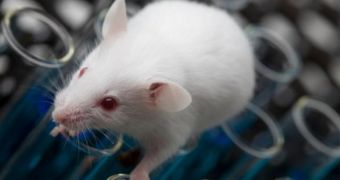A paper published in a recent issue of the journal Cancer Biology & Therapy documents the use of a virus to kill cancer cells, and even tumors grown in laboratory mice.
The experiments presented in this paper were carried out by researchers at Pennsylvania State University, and their outcome indicates that something as simple as a virus could help develop better cancer treatment options.
The scientists behind this research project explain that the virus that they toyed with as part of their investigation is dubbed AAV2, which stands for Adeno-associated virus type 2.
They detail that, as shown by previous studies, AAV2 is an everyday virus, meaning that it is common sight in the natural world. What's more, it appears that, although it has the ability to infect humans, it does not cause disease.
Before actual tumors were exposed to this virus, AAV2 was used to try and kill triple-negative breast cancer cells grown in laboratory conditions, the team of researchers writes in the journal Cancer Biology & Therapy.
Despite the fact that triple-negative breast cancer has been shown to be especially aggressive, AAV2 somehow managed to slow the growth and eventually kill 100% of the triple-negative breast cancer cells that it came into contact with.
The Pennsylvania State University scientists argue that, according to evidence at hand, the virus achieved this by activating specific proteins that trigger natural cell death. Interestingly enough, AAV2 killed the cancer cells without affecting healthy ones in any way.
When mice that carried tumors grown from human breast cancer cells inside their bodies were injected with this everyday virus, the researchers found that, when compared to a control group that did not receive any treatment, they lived considerably longer.
What's more, the laboratory rodents that were treated with AAV2 experienced a decrease in the size of their tumors, and areas of cell death became noticeable inside their bodies. However, none of the mice showed any signs of having been made sick by this treatment.
The Pennsylvania State University researchers expect that, in time, their findings will lead to the development of better treatment options for people diagnosed with breast cancer. Still, they stress that, all things considered, further investigations are in order.
“Treatment of breast cancer remains difficult because there are multiple signaling pathways that promote tumor growth and develop resistance to treatment,” says specialist Craig Meyers. Furthermore, “These results are significant, since tumor necrosis -- or death -- in response to therapy is also used as the measure of an effective chemotherapeutic.”

 14 DAY TRIAL //
14 DAY TRIAL //